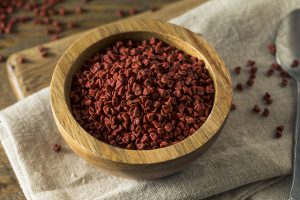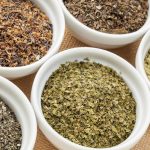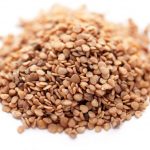
Natto – sources, health benefits, nutrients, uses and constituents at NaturalPedia.com
Saturday, July 29, 2017 by Earl Garcia
http://www.naturalnewsherbs.com/2017-07-29-natto-sources-health-benefits-nutrients-uses-and-constituents-at-naturalpedia-com.html

Natto is a fermented soybean paste that is popular in Japan. It is steadily picking up steam as a potent superfood due to its many health benefits. Natto is made by soaking whole soybeans then steaming or boiling them for hours before fermenting them with bacteria. According to an article on the Mother Nature Network website, the superfood is characterized by its pungent smell, lumpy and gooey consistency, and cottage cheese-like flavor.

List of known nutrients
The traditional Japanese food is packed with important vitamins and minerals that fortify the body against a host of illnesses. An entry on SELF Nutrition Data website features a complete list of nutrients found in natto.
- Calcium
- Choline
- Copper
- Folate
- Iron
- Lecithin
- Linoleic acid
- Magnesium
- Manganese
- Niacin
- Pantothenic Acid
- Phosphorus
- Potassium
- Riboflavin
- Selenium
- Sodium
- Thiamine
- Total Omega-3 fatty acids
- Total Omega-6 fatty acids
- Vitamin A
- Vitamin B6
- Vitamin B12
- Vitamin C
- Vitamin E
- Vitamin K1
- Vitamin K2
- Zinc
Medicinal uses for natto
As with other fermented products, natto may prove to be an acquired taste. However, the same fermentation process makes natto especially beneficial to the digestive system. The superfood is loaded with probiotics that facilitate the digestive process and improve the digestive system’s overall health, such as one probiotic type exhibited potential in helping celiac disease patients digest gluten. Natto is also remarkably effective in relieving constipation.
Natto also boasts with high levels of vitamins K1 and K2. Very few foods contain both types of K vitamins, making the superfood a rare find. Each 100 gram serving of natto provides 29 percent of the recommended daily intake of vitamin K. The superfood’s high vitamin K content is found to regulate blood clotting and prevent arterial calcification. On the other hand, a superfood compound aptly called nattokinase is known to improve blood flow and mitigate platelet aggregation. This makes natto particularly beneficial in improving heart health. In fact, Japanese folk medicine uses natto to alleviate heart diseases.
Aside from this, natto is notably high in calcium and magnesium, at about 22 percent and 29 percent of the daily recommended amount, respectively. The combination of these nutrients help prevent osteoporosis and improve bone and teeth profile.
In addition, natto is remarkably abundant in protein and iron. Each 100 g of natto offers 35 percent of the recommended daily intake of protein and 48 percent of the suggested daily iron intake. The high protein content in natto stimulates cell and muscle growth, while its abundant iron supply facilitates oxygen delivery across the body’s many organ systems.
Moreover, natto is an excellent source of vitamin C that fortifies the body’s immunity against a host of illnesses. Each 100 g of natto provides as much as 22 percent of the daily recommended intake of vitamin C. The superfood’s ample vitamin C supply counters the harmful effects of free radicals and prevents cellular damage. This, in turn, protects the body against cancer and other degenerative diseases such as macular degeneration and cystic fibrosis.
Body systems supported by natto
Natto is particularly helpful in maintaining a healthy digestive profile. Likewise, the traditional Japanese food is beneficial to the cardiovascular health. In addition, natto supports the muscular and skeletal systems. The superfood also bolsters the circulatory and immune systems.
Ways to use natto
Natto is most commonly used as an additional ingredient to traditional fried rice. Likewise, the superfood can be added to red meat, omelette, and even sushi. An article posted in LAWeekly.com features a few interesting natto recipes.
Where to learn more
- Eat Natto and Care for Your Cardiovascular System Naturally
- Organic natto is extraordinary food for your heart
- The Health Benefits of Natto
- Why You Need to Know about the Health Benefits of Super Food Natto
- Natural Enzyme in a Japanese Food Dissolves Blood Clots
Summary
Natto relieves digestive issues and prevents osteoporosis and heart disease.
Natto staves off cancer, macular, degeneration and cystic fibrosis.
Natto benefits the digestive, cardiovascular and skeletal systems.
Natto also supports the muscular, circulatory, and immune systems.
Sources include:
Tagged Under: Tags: natto





